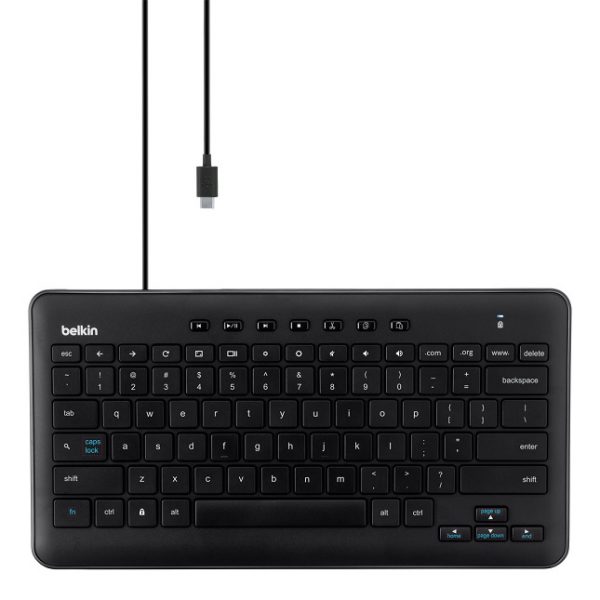
Belkin announces two USB-C keyboards for Chrome OS tablets
Tablets running Chrome OS are actually a thing now, as the Chromebook Tab 10 shows us. While that device is mostly aimed at education, it's only a matter of time before companies offer similar devices for business and personal use too. Since Chrome OS can run Android apps now, some people expect it to replace Android on tablets in the future. I'm not yet sold on that concept -- I still prefer Android running Chrome rather than Chrome running Android, but I'll keep an open mind.
The biggest problem with Chrome OS tablets -- especially for education -- is the lack of a physical keyboard. The Chromebook Tab 10, for instance, is just a tablet -- it does not come with a detachable keyboard. Well, Belkin aims to solve this with the all-new Wired Tablet Keyboard with Stand. As the name implies, it is a USB-C keyboard that props up the tablet for a laptop-like typing experience. In addition, the company unveils a similar keyboard without the stand. That product will work with tablets too, although it is probably better suited for a USB-C enabled Chromebook (when connected to a monitor as a desktop), Chromebase, or Chromebox.
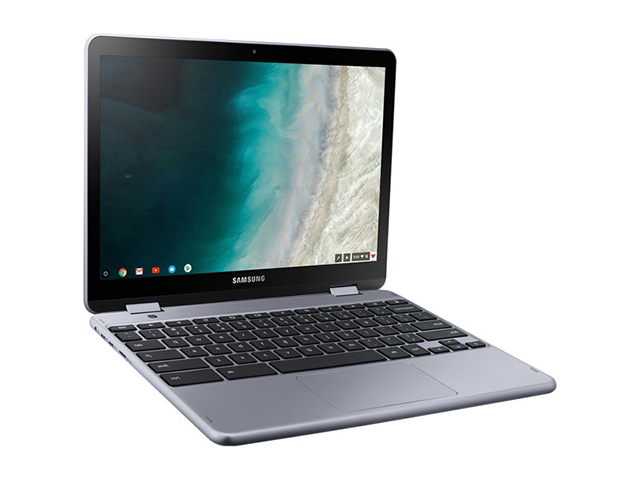
Samsung unveils Chromebook Plus (V2), coming to Best Buy June 24
When people say Chromebooks are glorified web browsers, do not listen to them. Haters are going to hate, but the truth is, laptops running Google's Linux-based Chrome OS are highly capable. In fact, the vast majority of home users would be perfectly fine forgoing Windows and choosing a Chromebook instead. Heck, even many businesses would find Chrome OS to be a delight.
Today, Samsung announces its latest such laptop -- the premium, yet affordable, Chromebook Plus (V2). This is a refresh of the first-gen "Plus" model. It can run Android apps and doubles as a convertible tablet, making it very versatile. Best of all, you won't have to wait long to get it -- it will go on sale very soon.
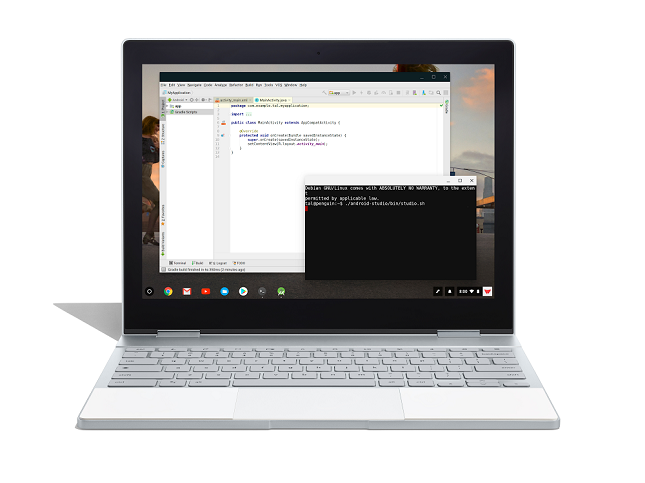
Google's Chrome OS getting support for traditional Linux apps, but don't get excited just yet
Google is a big supporter and user of Linux. Android, for instance, is the most popular Linux-based distribution in the world. Mobile aside, the search giant also leverages the open source kernel for its desktop operating system -- Chrome OS. While some Linux purists decry calling Google's operating systems "Linux," it simply cannot be denied. They are Linux.
I can understand some people suggesting traditional Linux distributions like Ubuntu or Fedora, but Chrome OS -- and the Chromebooks on which it runs -- is arguably more secure while also being easier to use. If I had to choose one operating system for accessing bank websites, for instance, I'd choose Chrome OS over any other. Unfortunately, its limited nature -- which makes it secure and easy to use -- also hinders power users. Sometimes a web or Android app just won't cut it. Well, folks, thankfully the rumors were true -- traditional Linux programs are coming to Chrome OS!
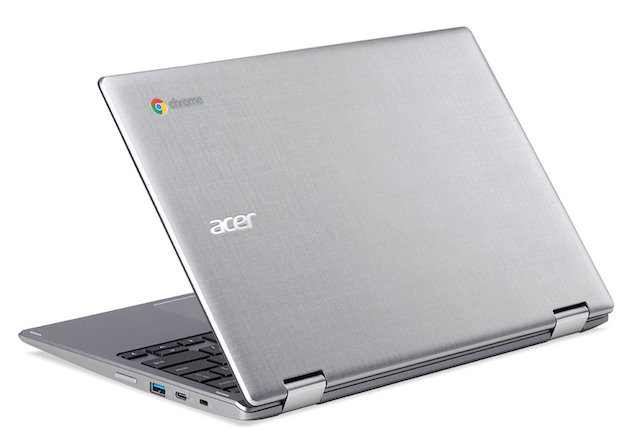
Discovery of Terminal app for Chrome OS suggests future support for Linux software
Chrome OS is a fairly flexible operating system, and its support for Android apps via the Google Play Store opens up a world of software. It has been thought -- and hoped -- for some time that Linux support might be on its way, and this is looking increasingly likely.
A Terminal app has appeared in the Chrome OS dev channel, strongly suggesting that support for Linux applications could well be on the horizon -- something which will give Chromebooks a new appeal.
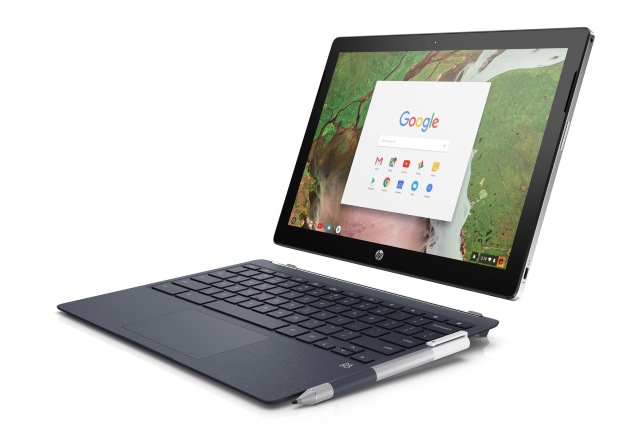
The HP Chromebook x2 with detachable screen is ready to take on the iPad Pro and Surface Pro
There's a new Chromebook on the block -- or there will be soon -- and this HP offering is determined to stand out from the crowd... and give both the Surface Pro and iPad Pro a run for their money.
Running Chrome OS, the HP Chromebook x2 supports Android apps, features a stylus, and -- importantly -- has a detachable screen so it can be used as a tablet or a laptop. The 12.3-inch device comes in at a shade under $600, and the hardware specs are impressive... for the price, at least.
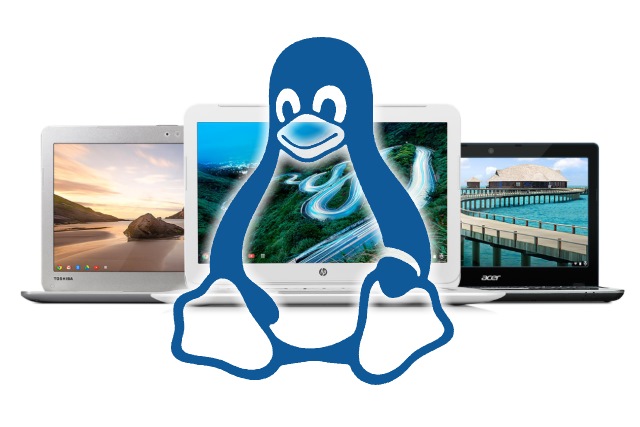
Chromebooks could soon run Linux applications and VMs using containers
With Linux being at the core of Chrome OS, it perhaps seems surprising that there's no easy way to run Linux distros or applications on Chromebooks. Yes, there's a Crouton script that can help you to achieve this, but it's far from ideal as it massively lowers system security. All this could be about to change, however.
A newly merged commit in Chromium Gerrit has been spotted which talks about a "new device policy to allow Linux VMs on Chrome OS." This would be a major change for Chromebook users, and we could see it as soon as version 66 of Chrome OS.

How to install Ubuntu Linux on a Chromebook: An official Canonical tutorial
Chromebooks run Chrome OS, which is a very secure Linux distribution. While that operating system is very easy to use, it can sometimes be limited by a lack of software. You see, for the most part, these Chromebooks are designed to only run web apps. Thanks to emerging Android support, however, this is slowly changing. Still, a traditional desktop Linux distro can be much more useful.
One of the most popular Linux-based desktop operating systems is Ubuntu, and today, its maker, Canonical, launches an official guide on how to get its OS running on a Chromebook. Since this tutorial is directly from the Ubuntu-maker, you can have extra confidence that it should work well.
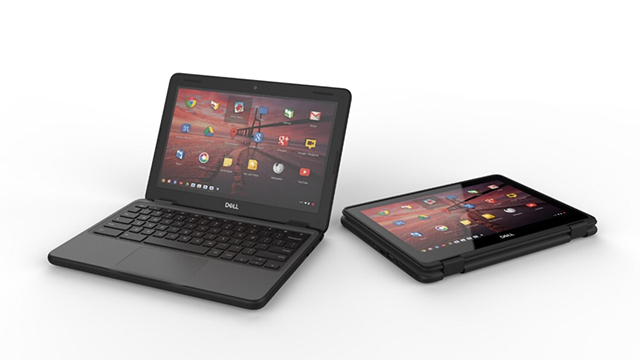
Dell Chromebook 5190 offers 13 hours battery life
While Dell is one of the largest Windows computer manufacturers, it is also a big proponent of Linux. For instance, the company sells machines running Ubuntu -- its relationship with Microsoft be damned.
Ubuntu is not the only Linux-based operating system that can be found on a Dell laptop. Actually, the company also sells Chromebooks, which run Chrome OS. Yes, Google’s web-focused desktop OS is a Linux distro. Today, Dell unveils its latest such Chromebook, the 5190. It is rugged, has USB-C, stylus support, and offers an impressive 13 hours of battery life.

Acer unveils Chromebook 11 C732, Chromebook Spin 11, and Chromebox CXI3
When it comes to Chromebooks, Acer is one of the premier manufacturers. From the early days of Google's desktop OS, Acer has produced quality computers running the Linux-based Chrome OS. Best of all, Acer's Chromebooks and Chromeboxes are often quite affordable. This makes sense, since the company is largely a value-focused manufacturer. Quite frankly, Acer and Chrome OS are a match made in heaven.
Hot on the heels of announcing its all-new Chromebook 11, the company today unveils three new Chrome OS computers -- Chromebook 11 C732, Chromebook Spin 11, and Chromebox CXI3. While the Chromebooks will likely get much of the attention, I am quite smitten with the Chromebox. This diminutive desktop is absolutely gorgeous, and it is chock-full of useful ports. The Chromebook 11 C732 is also quite intriguing, thanks to its optional LTE connectivity!
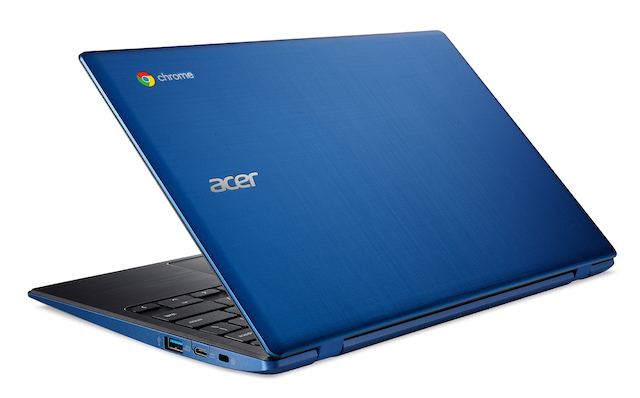
This is the new Acer Chromebook 11
Many people diss Chromebooks because they simply don't understand them. No, Chrome OS -- the operating system that powers these laptops -- is not just a glorified web browser. Actually, the OS is a full Linux distribution that is both extremely secure and easy to use. True, they can be deficient for some tasks, such as video editing and hardcore gaming, but let's be honest -- not everyone has those needs. If everything you do is in a browser -- email, web surfing, social media, YouTube, Netflix, etc. -- there is no reason to run Windows and open yourself up to malware and other bad things. Hell, Chromebooks even have Microsoft Office support these days!
Today, Acer unveils its latest Chromebook 11, and it is absolutely beautiful. The 11.6-inch Chrome OS laptop comes with 4GB of RAM by default, plus your choice of either 16GB or 32GB of onboard storage. There is even an optional touch-screen variant, which will come in handy for its Google Play Android app support. Road warriors will appreciate the impressive 10-hour battery life. The Celeron processor is passively cooled, meaning there are no fans to bother you with noise.
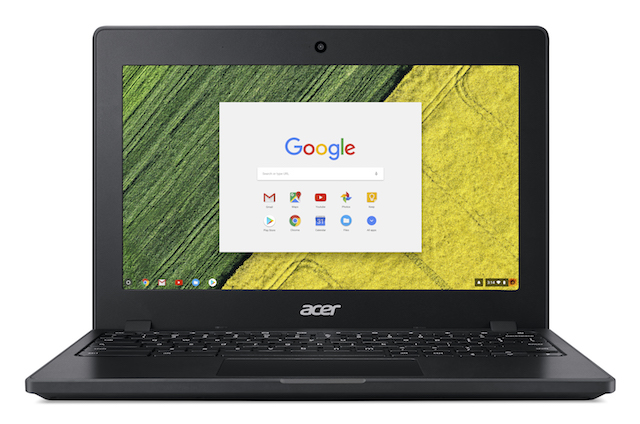
Microsoft Office is now available for all Chromebooks
A key piece of software that has been missing from Chromebooks is now available to everyone -- Microsoft Office. Microsoft has made its office suite available for a range of platforms over the years, but Chromebook support has been notable by its absence. Now, without announcement from the company, this changes.
It's great news for anyone who has been put off by the idea of using a Chromebook because they couldn't use their favorite software. The arrival of Office is partly thanks to the appearance of the Play Store on Chromebooks.
Google unveils 'Pixelbook' Chromebook, and it is much better than a Windows 10 PC
Fact -- Chromebooks are much better than Windows 10 PCs. Well, for some people, at least. I'll concede that some consumers will be better served by Windows or macOS, but nowadays, most home users can get by with Chrome OS. After all, many folks live in the web browser, doing things like watching YouTube and checking Facebook. While Windows 10 can arguably do more, it is also less secure. If you can get by with a Chromebook, you should! By the way, Chrome OS is not a glorified web browser, but instead, a well-designed Linux-based operating system.
Today, Google unveils the "Pixelbook," which is a high-end Chromebook with a 12.3-inch touch screen and stylus support. It can even convert into a tablet. It weighs a mere 1.1 kilograms and is just 10.3mm thick. Since it can run Android apps, there isn't much you can't do with it. True, it isn't a solution for, say, professional photo or video editing, but most people don't need that. And so, the Pixelbook is here to offer an elegant Chrome OS experience, reminiscent of the excellent Chromebook Pixel.

Google Store flubs Pixel Product Preorders
I would like to thank Google for saving me thousands of dollars in needless spending. Near the end of today's gangbuster hardware event, I was ready to order two new Chromebooks and smartphones, one each for me and my wife. But "error 500" pages on the company's store website and long-lead new product availability dates prompted me to cancel the one order successfully made and to delete the others in process from my shopping cart.
For a company whose product managers droned on this morning about all the reasons why artificial intelligence is so right, Big G got the store selling experience all wrong. I have waited through most of 2017 for a new Google-branded Chrome OS laptop. While hardly a fresh hardware design concept, Pixelbook is nevertheless tempting enough to bring me back to the AI and voice-assistant contextual future from the Apple rotting on the overly-obsessed touch-UI tree. I was willing and ready but instead walked away angry.
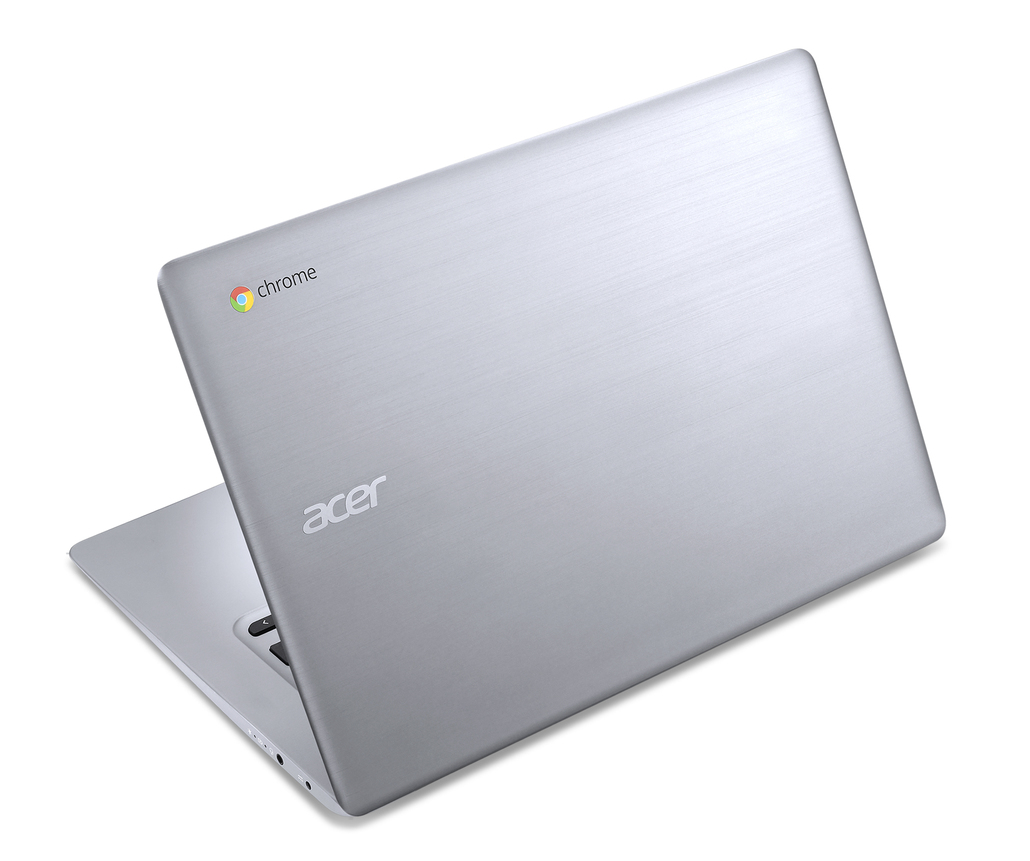
How to disable a touchpad on a Chromebook
Using a Chromebook and having problems? You aren't the only one. In the middle of typing, your cursor can jump to the center of another sentence or jumble all of your words. It's not only annoying, it can get confusing to fix. What you need to do is disable the touchpad.
On some Windows PCs there's a simple solution that involves pressing a key at the top. That isn't the case with Chrome OS. It can be done, it just takes a bit more work to accomplish the goal.
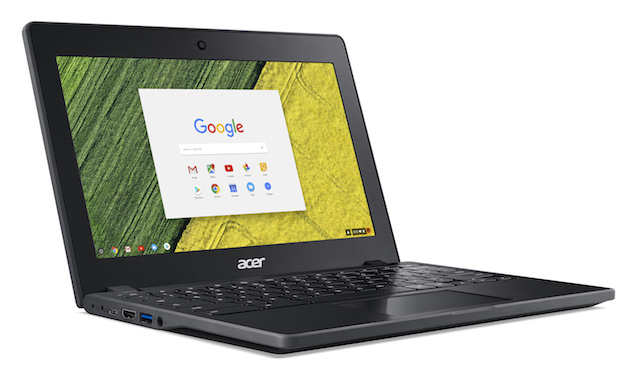
Acer Chromebook 11 C771 has optional touch screen and up to 13 hours battery life
I absolutely love Chromebooks. Well, not for me exactly, but I love suggesting them to other people when appropriate. While they aren't for everybody, they are brilliant when they can meet a user's needs. The underlying Chrome OS operating system is based on Linux and is extremely secure. In fact, it can be argued that Google's laptop operating system is the most secure OS for web browsing. If you are tired of fixing either a friend or family member's Windows 10 PC, and they live in a web browser, get them on a Chromebook and get some of your time -- and sanity -- back.
Today, Acer unveils a new laptop running Chrome OS. The "Chromebook 11 C771," as it is called, is designed primarily for education (where they really shine), plus as thin clients for businesses too. The notebook features an 11.6-inch display with optional touch, and up to 13 hours battery life. Since it is designed primarily for students, and they can be rough on computers, the C771 has military grade (MIL-STD 810G) durability and a spill-resistant keyboard. It can even survive a 4 foot drop.
